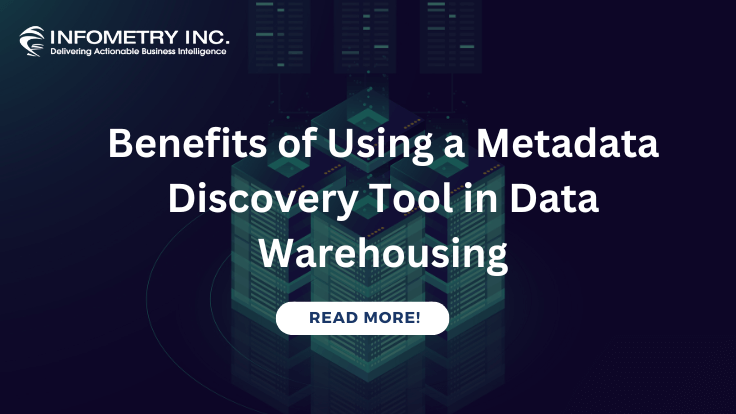
ETL Explained: Demystifying the Data Pipeline
March 18, 2024
The Role of EMM in Modern Data Environments
March 20, 2024In the ever-evolving landscape of business, organizations are constantly seeking ways to enhance their performance, streamline operations, and make informed decisions. This pursuit has led to the rise of Enterprise Performance Management (EPM) solutions, which play a pivotal role in aligning business strategies with day-to-day operations. In this blog, we will delve into the essence of Enterprise Performance Management, exploring its key components, benefits, and the role of Infometry in revolutionizing EPM.
Understanding Enterprise Performance Management:
Enterprise Performance Management (EPM) is a holistic approach that integrates various methodologies, processes, and technologies to manage and optimize an organization’s performance. EPM encompasses a wide range of activities, including strategic planning, budgeting, forecasting, consolidation, reporting, and analytics. The primary goal of EPM is to align business activities with the goals and objectives of the organization, ensuring that resources are utilized efficiently to drive sustainable growth.
Key Components of Enterprise Performance Management:
Strategic Planning: EPM begins with strategic planning, where organizations define their objectives, key performance indicators (KPIs), and long-term goals. This phase sets the foundation for the entire EPM process.
Budgeting and Forecasting: EPM solutions facilitate the creation of detailed budgets and forecasts, enabling organizations to allocate resources effectively and anticipate future financial outcomes. This component helps in mitigating risks and seizing opportunities.
Consolidation and Financial Close: EPM streamlines the financial consolidation process, ensuring accuracy and compliance with regulatory standards. Timely and accurate financial close processes are essential for providing stakeholders with reliable financial information.
Reporting and Analysis: EPM solutions offer robust reporting and analytics capabilities, allowing organizations to gain valuable insights from their data. Real-time reporting helps in monitoring performance against KPIs, making data-driven decisions, and identifying areas for improvement.
Performance Scorecards and Dashboards: Visual representations of key metrics through scorecards and dashboards provide a quick overview of organizational performance. Infometry’s solutions play a crucial role in creating intuitive and customizable dashboards tailored to the specific needs of businesses.
Benefits of Enterprise Performance Management:
Improved Decision-Making:
EPM provides decision-makers with real-time insights, enabling them to make informed and strategic decisions.
Enhanced Financial Planning and Control:
Streamlines budgeting and forecasting processes, ensuring accurate financial plans and better control over resources.
Increased Accountability:
Assigns responsibility and accountability for performance, fostering a culture of transparency and ownership.
Optimized Resource Allocation:
Enables organizations to allocate resources efficiently based on strategic priorities and performance data.
Enhanced Collaboration:
Facilitates collaboration among different departments by providing a unified platform for planning, reporting, and analysis.
Best Practices in Enterprise Performance Management:
Align EPM with Business Strategy:
Ensure that EPM activities are aligned with the overall business strategy and objectives.
Engage Stakeholders:
Involve key stakeholders in the EPM process to gather valuable insights and ensure widespread support.
Continuous Monitoring and Adaptation:
Regularly monitor performance metrics and adapt EPM processes to changing business conditions.
Invest in Technology:
Utilize advanced EPM software and analytics tools to enhance efficiency and accuracy in performance management.
Focus on Data Quality:
Maintain high data quality standards to ensure the accuracy and reliability of performance metrics.
Conclusion:
In conclusion, Enterprise Performance Management is a critical aspect of modern business strategy, enabling organizations to align their operations with overarching goals. Infometry’s innovative solutions play a pivotal role in enhancing the efficiency and effectiveness of EPM processes, offering a robust foundation for sustainable growth. As businesses continue to navigate a dynamic and competitive landscape, embracing EPM with Infometry becomes a strategic imperative for unlocking their full potential.




